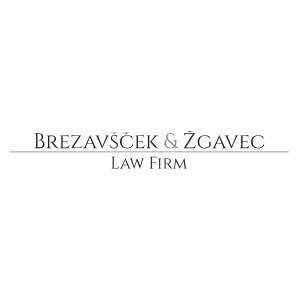Best Tax Lawyers in Slovenia
Share your needs with us, get contacted by law firms.
Free. Takes 2 min.
Or refine your search by selecting a city:
List of the best lawyers in Slovenia
About Tax Law in Slovenia
Tax law in Slovenia is governed by various laws and regulations that ensure the proper collection and administration of taxes within the country. The key legislation includes the Personal Income Tax Act, Corporate Income Tax Act, Value Added Tax (VAT) Act, and various international treaties Slovenia is a part of. The tax system is structured to encourage compliance while providing guidelines on taxation for individuals, businesses, and other entities functioning within Slovenia.
Why You May Need a Lawyer
Legal expertise in tax law is crucial for navigating complex tax regulations and ensuring compliance with the law. Common situations where you may require legal assistance include:
- Disputes with the tax authority over assessments or penalties
- Corporate tax planning to optimize tax liabilities
- Understanding implications of international tax treaties
- Handling audits and investigations by the Financial Administration of the Republic of Slovenia
- Tax exemption or deduction claims
- Estate or inheritance tax planning
Local Laws Overview
Several key aspects are crucial when dealing with tax in Slovenia:
- Personal Income Tax: Covers income earned by individuals from employment, savings, and other sources. Different tax rates apply depending on income brackets.
- Corporate Income Tax: Applies to businesses and corporate bodies. The standard tax rate is currently set at 19%.
- Value Added Tax (VAT): A consumption tax levied on goods and services, with a standard rate of 22% and a reduced rate for certain categories.
- Withholding Tax: Applied to certain types of income paid to non-residents.
- Double Tax Treaties: Slovenia has agreements with various countries to prevent double taxation on income.
- Tax Administration: The Financial Administration of the Republic of Slovenia is the primary body overseeing tax matters.
Frequently Asked Questions
What is the deadline for filing personal income tax returns in Slovenia?
The deadline is usually at the end of March each year for the previous year's income.
How is corporate tax calculated in Slovenia?
Corporate tax is calculated based on a flat rate of 19% on the profits of a company, though there may be deductions and allowances applicable.
Are there any tax incentives for businesses in Slovenia?
Yes, incentives such as tax reliefs for investment, research and development, and employment of certain categories of workers exist.
How do I contest a tax assessment in Slovenia?
A taxpayer can file a written objection to the Financial Administration within 15 days of receiving the assessment.
What is the VAT registration threshold in Slovenia?
The VAT registration threshold is currently €50,000, below which businesses are exempt from VAT registration.
Are foreign employers required to pay Slovenian tax on their employees?
Yes, if the employees are deemed to have a tax presence in Slovenia, the employer may need to comply with Slovenian tax obligations.
Can I get a tax refund in Slovenia?
Taxpayers may be eligible for refunds if they have overpaid taxes, which can be claimed using the prescribed procedure.
What are Slovenia’s tax rates for dividends?
Dividends paid to residents are typically taxed at a flat rate of 25%.
How is inheritance tax handled in Slovenia?
Inheritance tax depends on the relationship between the deceased and the heir, with different rates for different classes of heirs.
Is accounting legally required for businesses in Slovenia?
Yes, businesses must maintain proper accounting records in compliance with Slovenian accounting standards.
Additional Resources
For further information and help regarding tax matters in Slovenia, consider exploring the following resources:
- Financial Administration of the Republic of Slovenia (FURS)
- Ministry of Finance of the Republic of Slovenia
- Slovenian Bar Association for legal representation
- Institute of Chartered Accountants and Auditors of Slovenia
Next Steps
If you require legal assistance in tax matters, consider the following steps:
- Compile all relevant tax documents and records.
- Seek referrals for reputable tax lawyers or firms specializing in tax law.
- Schedule a consultation with a lawyer to discuss your situation and requirements.
- Ensure your lawyer understands your objectives and provides a clear action plan for resolution.
- Follow up and remain compliant with any legal advice provided to avoid further complications.
Lawzana helps you find the best lawyers and law firms in Slovenia through a curated and pre-screened list of qualified legal professionals. Our platform offers rankings and detailed profiles of attorneys and law firms, allowing you to compare based on practice areas, including Tax, experience, and client feedback.
Each profile includes a description of the firm's areas of practice, client reviews, team members and partners, year of establishment, spoken languages, office locations, contact information, social media presence, and any published articles or resources. Most firms on our platform speak English and are experienced in both local and international legal matters.
Get a quote from top-rated law firms in Slovenia — quickly, securely, and without unnecessary hassle.
Disclaimer:
The information provided on this page is for general informational purposes only and does not constitute legal advice. While we strive to ensure the accuracy and relevance of the content, legal information may change over time, and interpretations of the law can vary. You should always consult with a qualified legal professional for advice specific to your situation.
We disclaim all liability for actions taken or not taken based on the content of this page. If you believe any information is incorrect or outdated, please contact us, and we will review and update it where appropriate.
Browse tax law firms by city in Slovenia
Refine your search by selecting a city.

















